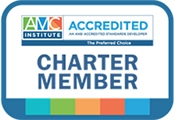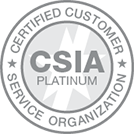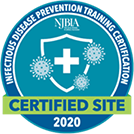An association management company (AMC) is usually a for-profit firm made up of professionals from various specialties (non-profit management, meeting management, marketing, public relations, accounting, etc.) that provides management services to volunteer associations on a fee-for-service basis.
The AMC provides the professional staff, administrative support, office space, technology, and equipment the association needs to operate. The AMC staff works as the association’s staff, helping volunteer leaders develop and execute the strategies and programs to serve their membership. The AMC industry is more than 110 years old. Today, there are more than 600 AMCs worldwide.

Why use the Association Management Company Model?
Volunteer associations are usually managed in one of three ways:
- By volunteers who spend personal time running the organization
- By a full-time staff that is hired, paid, and managed by the organization’s volunteer leaders
- By an association management company
The first two options have obvious limits in terms of the time and resources that can be dedicated to helping an organization succeed. In the first, volunteers have limited time to dedicate to the organization and usually end up spending a large amount of time on basic operations. In the second, while staff handles operations, volunteers end up spending a large amount of time managing human resource issues like staff performance and pay, financial issues like expenses, benefits, rent, and legal issues such as insurance coverage, vendor contracts, and liability. The third model, the AMC model, offers organizations the best way to get the greatest value from their investment of volunteer time and resources.
Benefits of Partnering with an AMC
Partnering with an Association Management Company (AMC) provides access to expert AMC services and nonprofit management solutions that help associations operate more efficiently and effectively. The benefits of partnering with an AMC include:
- AMCs are usually owned/operated by former or current association executives
- Owners and key personnel are very familiar with the challenges of association management
- AMCs have staff who are expert in niche areas and usually have more experience in their given field than the candidates associations could hire on their own
- AMCs can provide associations the expertise they need only when they need it based on the concept of shared resources
- The cost of this experienced support is more affordable for associations because personnel costs are split across an AMC's client base
- AMCs provide organizations economies of scale through shared office space, equipment, and supplies costs
See the impact we have - read our case studies today.
An AMC can work with any association during any part of the association life cycle, from start-up to well-established organizations.
Who Should Consider Hiring an AMC?
More and more associations are turning to association management companies because they can turn over the administrative hassle to someone else and they get more valuable expert support to help direct their strategic operations. An AMC can work with any association during any part of the association life cycle, from start-up to well-established organizations. Some examples of associations who can work with AMCs are:
- Small, volunteer-run organizations when the work becomes more than the volunteers can handle
- Medium-size organizations looking for more expert guidance in formalizing best practices and procedures
- Large organizations looking for administrative or other types of support to complement their existing staff
- Large organizations looking for a partner to handle a project
Ready to partner with an AMC? Get in touch.




